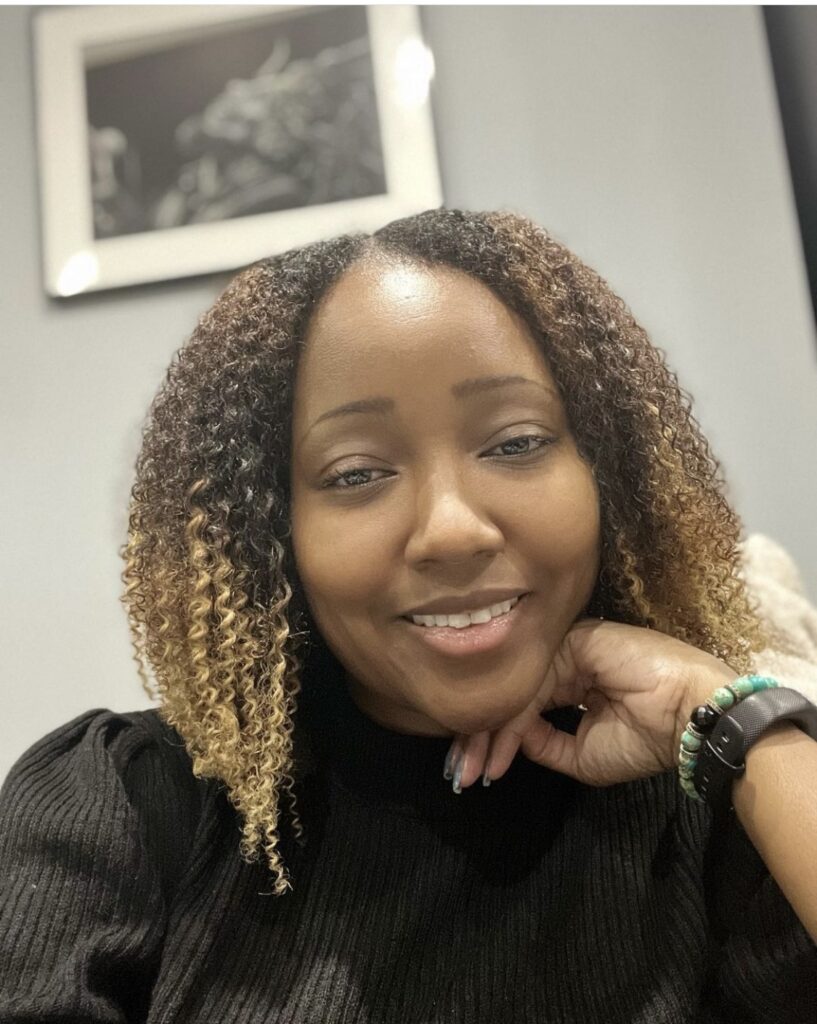
News
Before people see the autism, they see my race
A graduate from our Child, community and educational psychology post graduate course, Dr Tiffany Nelson, has published her doctoral thesis in the most used peer-reviewed journal for educational psychology in the UK.
In the thesis, ‘The lived experiences of masking Black autistic girls in UK education’, Tiffany explored the lived experiences of Black autistic girls, addressing a significant gap in autism research, educational and psychological practice.
The thesis and research aimed to illuminate the lived experiences of Black autistic girls who mask and camouflage themselves within the UK education system. Autistic masking and camouflaging refer to strategies used to suppress or hide autistic traits to appear neurotypical.
The experiences of masking and camouflaging Black Autistic girls in UK education are uniquely complex, rooted in a long history of oppression against women, Black people, and disabled communities. These intersecting forces remain embedded in societal structures that define normalcy through Whiteness and ability, shaping school environments where masking becomes a survival strategy.

Semi-structured interviews were conducted with four participants aged 16 and 17 who were all diagnosed with autism during their teenage years. The research helped capture and highlight voices which are rarely represented in literature or policy.
The research and interviews identified five key themes: acceptance and belonging; navigating social expectations; the intersection of race, gender, and autism; sensory overload; and the importance of relational support.
The importance of acceptance and belonging
All of the girls who were interviewed discussed feeling rejected and excluded. They highlighted their embodied emotional distress response to how they perceived how others viewed them.
“I actually got called mentally ill by a lot of the people in my school […] they’d be like, Maia, you’re actually mentally ill. That’s the type of names that used to come back to me when I was younger, just because I used to express myself.” – Maia
I feel like if you’re not your true self, then you won’t ever really know who you are
Their experiences of acceptance and belonging seemed less reliant on how they felt others perceived them once they were diagnosed, and on reflection it was shown they were aware they were masking their autism and the negative consequences from doing so.
“I feel like if you’re not your true self, then you won’t ever really know who you are […] That’s how you can kind of fall down into the path of feeling, like I said, ugly, not loved, not like all of these things, cause you’re masking up all your behaviours, you’re not being yourself to people that you feel like are meant to love you.” – Poppy
Managing social expectations and norms
I was just the weird one that hung out with the popular kids
The girls collectively paint a picture of the often draining nature of managing social expectations, leading them to mask and camouflage their true selves to fit in and maintain friendships.
“I was just the weird one that hung out with the popular kids. Because there’s always that one that’s kind of like (pause) there but they’re not really there, and that was me.” – Maia
I used to find like hanging out with them like fighting for my life […] I can never really live up to any expectations because I was just like, mentally and physically I wouldn’t be able to catch up with things. – Lily
Navigating the intersection of autism, race and gender
All girls described facing racism, ableism and sexism from peers and teaching staff through microaggressions, harassment, and abuse. Experiences of support were limited, compounded by judgement and lack of acceptance from the Black community.
Before they see the autism, they’re always going to see my race
Maia emphasised that her Blackness was the most prominent aspect of her identity to others:
“Before they see the autism, they’re always going to see my race. I thought this is why it’s really different to be Black and Autistic, than White and Autistic.” – Maia
Challenges with sensory sensitivities and overload
Sensory sensitivities and overload caused the girls significant discomfort, emotional distress, and physical exhaustion.
SS encountered daily sensory discomfort in school. The intersubjective nature of this experience is highlighted by her peers’ reactions, labelling her as “emotional” or a “basket case”, revealing a profound misunderstanding of Autistic experiences in neurotypical-dominated spaces.
“It’s always loud, because there’s just a bunch of different students just running and just making a bunch of noise […] It was just loud, and I couldn’t even, couldn’t focus on what was happening. I needed my headphones […] I didn’t know what that was at the time, I just thought I was just like – it was just loud. And everything was just a bit too much.” – SS
It’s so demanding for me and next I feel like I’m failing
The school environment left Lily exhausted and feeling like she was “failing”, reflecting the internalisation of societal norms. This sense of personal inadequacy may have hindered her ability to seek support, highlighting how societal expectations can shape self-perception and limit self-advocacy:
“It’s so demanding for me and next I feel like I’m failing, but I don’t know how to ask for that help.” – Lily
The significant role of support and understanding
The girls revealed how understanding, advocacy, and appropriate accommodations from family, friends, and educators significantly influenced their experiences and outcomes.
Maia’s account of her mother’s advocacy against isolation shows the crucial role parents play in challenging marginalising school practices. She described her mother’s “fight for me”, suggesting an ongoing struggle against systemic barriers, signalling what often becomes an adversarial nature of advocating for autistic children in educational settings:
“My mum wasn’t really happy about me being in isolation. I don’t think any parent would be. So yes, my mum was always trying to fight for me not to be in isolation.” – Maia
The value placed on neurodivergent friendships by SS and Lily, and Maia’s appreciation of her best friend’s understanding, emphasises the importance of peer relationships that offer validation and acceptance:
The friend group I have now, most of us are neurodivergent. So, we all kind of, are aware of each other’s needs.
“She’s just really sympathetic to me like she always understands me to a T […] I think that’s what’s really nice about it is that she validates my feelings, but then also gives me a different perspective of a situation.” – Maia
I hope schools begin to recognise that masking among Black autistic girls isn’t just a personal coping strategy; it is a survival response shaped by systemic racism, ableism, and misogyny
Tiffany recommends educational psychologists and related professionals adopt intersectional, neuro-affirming approaches in their practice, highlighting the importance of pupil voice, critical reflection, and anti-oppressive practice in creating inclusive learning environments.
She explains: “I hope schools begin to recognise that masking among Black autistic girls isn’t just a personal coping strategy; it is a survival response shaped by systemic racism, ableism, and misogyny. On an individual and group level, educators need to listen deeply, identify early, and support without forcing conformity. This extends beyond education; real change means recognising and challenging the role we all play in upholding social inequity in systems.”
“The course at the Tavi helped me hold complexity and sit with discomfort. It gave me the theory, skills, and language to name what I had sensed for years, along with the clarity and empowerment to centre voices that are often silenced – including my own.”
Read the full thesis on Taylor and Francis
Find out more
-
Child, community and educational psychology
Qualify as a registered practitioner educational psychologist with this doctorate course, validated by the University of Essex
